Editor’s note: The information for this story includes excerpts from the citations written from materials provided by the Horace H. Rackham School of Graduate Studies, the Office of the Vice President for Research, the Senate Advisory Committee on University Affairs and the University Press.
Twenty-one faculty members are being recognized Tuesday for their teaching, scholarship, service and creative activities. Here are the award categories and the honorees:
Distinguished Faculty Achievement Awards honor senior faculty who consistently have demonstrated outstanding achievements in the areas of scholarly research and/or creative endeavors; teaching and mentoring of students and junior faculty; service; and a variety of other activities. Up to five awards of $1,500 are made each year. Awardees include:
• Dr. Eva L. Feldman, Russell N. DeJong Professor of Neurology, U-M Health System
• Theodore Goodson III, Richard Barry Bernstein Collegiate Professor of Chemistry, LSA, and professor of macromolecular science and engineering, CoE
• Georg Raithel, professor of physics, LSA
• Joan Iverson Nassauer, professor of landscape architecture, School of Natural Resources and Environment
• Carl P. Simon, professor of mathematics, professor of complex systems, Center for the Study of Complex Systems, LSA, professor of public policy, Gerald R. Ford School of Public Policy
Faculty Recognition Awards are intended for faculty early in their careers who have demonstrated substantive contributions to the university through achievements in scholarly research and/or creative endeavors; excellence as a teacher, adviser and mentor; and distinguished participation in service activities of the university. Eligible candidates include full professors with no more than four years at that rank, associate professors and assistant professors. Up to five awards of $1,000 each are made each year. Recipients include:
• Pamela Brandwein, professor of political science, LSA
• Stephen L. DesJardins, professor of education; professor, Center for the Study of Higher and Postsecondary Education, School of Education
• Wei Lu, associate professor of mechanical engineering, CoE
• Jeffrey R. Martens, associate professor of pharmacology, Medical School
• Ayyalusamy Ramamoorthy, professor of chemistry, professor of biophysics, LSA
University Undergraduate Teaching Awards are designed to honor faculty early in their careers who have demonstrated outstanding ability in teaching undergraduate students. Nominees must have an evident commitment to students; a record of innovation in teaching and learning; notable dedication to working effectively with a diverse student body; and a consistently positive effect on students’ intellectual/artistic development. Each year up to two awards of $1,000 will be made. Awardees are:
• Aline Cotel, associate professor of civil and environmental engineering, CoE
• Kathleen Sienko, assistant professor of mechanical engineering, and assistant professor of biomedical engineering, CoE
University Press Book Awards are presented to members of the university teaching and research staff, including emeritus members, whose books have added the greatest distinction to the Press List. Selections are made from books published within a span of two calendar years. This year’s stipend is $1,500. Awardee:
• Buzz Alexander, Arthur F. Thurnau Professor of English Language and Literature, Department of Language and Literature, LSA
The University Librarian Recognition Award honors an individual who holds a primary faculty appointment as librarian, archivist or curator with no more than eight years’ practice in the profession. Selection criteria include active and innovative early career achievements in library, archival or curatorial services. This may include developing specialized services for faculty and students, improving access to information or efficiently managing library and archival resources, or other activities. The recipient is presented $1,000. Awardee:
• Suzanne Chapman, associate librarian, User Experience Department, Harlan Hatcher Graduate Library, University Library
The University Librarian Achievement Award is presented for exceptional distinction reflected in active and innovative career achievements in library, archival or curatorial services. The recipient will receive a $1,500 stipend. Awardee:
• Nerea A. Llamas, librarian, Harlan Hatcher Graduate Library, University Library
Research Faculty Achievement Awards are given for outstanding scholarly achievements, as represented by significant contributions to an academic field of study over time, a specific outstanding discovery or the development of innovative technology. Nominees must hold at least a 75-percent appointment at the rank of research professor, research associate professor, research scientist or associate research scientist. Recipients receive $1,500 each and are selected by the vice president for research based on the recommendation of the research faculty awards committee. Honorees:
• Mary Beth Ofstedal, associate research scientist, Population Studies Center, associate research scientist, Survey Research Center, Institute for Social Research
• Mei-Chuan (Holden) Ko, research associate professor, Department of Pharmacology, Medical School
Research Faculty Recognition Awards honor individuals who hold at least a 75-percent appointment at the rank of research associate professor, research assistant professor, associate research scientist or assistant research scientist. Selection criteria include exceptional scholarly achievements, as evidenced by publications and/or other scholarly activities in any academic field of study. There is a $1,000 stipend. Awardee:
• Michael Bailey, associate research professor and adjunct lecturer, Electrical Engineering and Computer Science Department, CoE
The Collegiate Research Professorship Award honors exceptional scholarly achievement and impact on advancing knowledge in science, engineering, health, education, the arts, the humanities or other academic field of study. The recipient is presented $2,000. Awardee:
• Susan Shore, research professor of otolaryngology, Kresge Hearing Research Institute, Department of Otolaryngology; associate professor of molecular and integrative physiology, Medical School
The Distinguished Faculty Governance Award was established by The Senate Advisory Committee on University Affairs in 1986 and is funded by the Alumni Association. The criterion for the award is distinguished service to faculty governance over several years with an emphasis on university wide service. A $1,500 stipend is presented. Awardee:
• Michael Thouless, professor of mechanical engineering, professor of materials science and engineering, CoE
The Jackie Lawson Memorial Faculty Governance Award honors those who have displayed exceptional distinction reflected in faculty governance service to the entire university that reaches beyond the local campus confines of Ann Arbor, Dearborn and Flint, and have excelled in building a positive relationship between the Ann Arbor campus and one or both regional campuses. A $1,500 stipend is presented. Awardee:
• Thomas A. Wrobel, professor of psychology, Department of Psychology, College of Arts and Sciences, UM-Flint
Distinguished Faculty Achievement Award, Dr. Eva Feldman
One of America’s most influential neurologists and stem cell scientists, Dr. Eva Feldman’s lifelong commitment to the study of diabetic neuropathy and amyotrophic lateral sclerosis, known as Lou Gehrig’s disease, has resulted in seminal contributions to its diagnosis and treatment. Under her leadership, the A. Alfred Taubman Medical Research Institute has garnered national recognition as one of the few facilities in the nation and the first in Michigan to produce embryonic stem cell lines. One of those lines was added to the U.S. National Institutes of Health registry this year. Feldman currently is overseeing the first clinical trial using stem cells in ALS patients. She also is experimenting with new ways to identify changes in the brains of ALS patients that could lead to better diagnostic and therapeutic options.
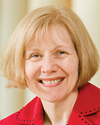
Feldman
Feldman heads multiple projects to improve diagnostics and standards of care for diabetic neuropathy. She introduced the idea that impaired glucose tolerance can first present as neuropathy. Based on her work, patients with idiopathic neuropathy now undergo a glucose tolerance test.
Feldman has published more than 275 articles, 59 book chapters and several books, and serves on numerous journal editorial boards. She has trained 40 postdoctoral fellows and 42 neurologists. Nine scientists have earned doctoral degrees working in her laboratory. She also has educated thousands of Michigan citizens about stem cell research, leading to voter approval of a constitutional amendment easing restrictions on stem cell science in 2008. Feldman is president of the American Neurological Association, a past president of the Peripheral Nerve Society, a member of the American Academy of Neurology Research Council and of the Johns Hopkins University Society of Scholars, and an American Academy of Neurology fellow. She is annually listed in Best Doctors in America and has been recognized by the Juvenile Diabetes Research Foundation and American Diabetes Association, and was selected a The Detroit News 2011 Michiganian of the Year.
Distinguished Faculty Achievement Award, Theodore Goodson III
Chemist and entrepreneur Theodore Goodson creates new paradigms in basic science and transforms them into novel applications. His discoveries include new materials to store energy and organic macromolecules with extraordinary nonlinear optical properties that can be used for quantum optics, to remotely detect improvised explosive devices and to diagnose disease. The holder of two patents, he founded Wolverine Energy Solutions and Technologies, dedicated to the development of innovative technology for alternative energy and homeland security. Goodson’s lab was the first to apply quantum optical effects, previously observed in inorganic semi-conductors and in the gas phase, to organic “real” materials. His group has investigated the use of nonlinear and time-resolved measurements to probe the aggregation process in peptides, mimicking aggregation that occurs in diseases such as Alzheimer’s. His group also was the first to use synthetic organic macromolecules to harvest light in a process that mimics photosynthesis.
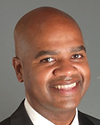
Goodson
Goodson has published more than 120 research articles in refereed journals such as the Journal of the American Chemical Society, Journal of Chemical Physics and Journal of Physical Chemistry, among others. He is a senior editor of the Journal of Physical Chemistry.
He presents physical chemistry to students in a creative, compelling way and updates graduate-level physical chemistry courses frequently to reflect current research. The Detroit section of the American Chemical Society has recognized his efforts to recruit and mentor students from diverse backgrounds. Many of his interns have gone on to top universities and careers in science and technology. Goodson is a founding member of the Rackham Graduate School’s Mentoring Others Results in Excellence program and has served as an adviser to the U-M chapter of the National Organization of Black Chemists and Chemical Engineers (NOBCCE). His accolades include the Alfred P. Sloan Award, Camille and Henry Dreyfus Foundation Teacher-Scholar Award, National Science Foundation CAREER Award, NOBCCE’s Percy L. Julian Award for outstanding research, and the Faculty Recognition Award.
Distinguished Faculty Achievement Award, Georg Raithel
Georg Raithel is known internationally for his pioneering research in atomic, molecular and optical physics. His breakthroughs with cold Rydberg atoms and optical lattices have advanced basic science and technology and are relevant to fields such as quantum computing and high-precision spectroscopy. Raithel is one of a handful of scientists to master the cooling and trapping of Rydberg atoms. These atoms eventually may be used to securely store and manipulate quantum information and interact with other quantum information carriers, including photons, quantum dots and superconducting circuits. This aspect has implications for computing and national security. Trapped Rydberg atoms also can be used to measure fundamental constants with precision, contributing to our understanding of nature. Recently, Raithel has trapped nanoparticles in an optical lattice, which allowed him to produce sub-micron-sized beads, a new material. The next challenge is to use an optical lattice to trap cells or viruses.
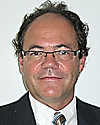
Raithel
Raithel studies interactions between Bose-Einstein condensates, a quantum-mechanical ultra-cold phase of matter, and ions to form a new type of super molecule. He also is interested in the guiding of cold atoms and in atom interferometry. This work has implications in measurement applications. He has published more than 100 papers, many in Physical Review Letters. A fellow of the American Physical Society and secretary treasurer of the society’s Atomic, Molecular and Optical Physics Division, he has served on numerous National Science Foundation and Department of Energy grant review panels.
Sixteen of Raithel’s students have earned doctorates. He is deeply involved in outreach projects, including Michigan’s Physics Olympiad for high school students. He has taught in the Michigan Math and Science Scholars program and sponsored many high school students and undergraduate college students working on summer research projects. Currently the Department of Physics associate chair of research, for several years he directed U-M’s Frontiers in Optical Coherent and Ultrafast Science Center.
Distinguished Faculty Achievement Award, Joan Iverson Nassauer
Joan Iverson Nassauer, landscape architect and landscape ecologist, has spearheaded the field of ecological design, investigating how human perceptions and preferences affect and are affected by ecological function. Her designs and research on the cultural acceptability of landscape patterns have changed the way land is designed and used around the world. Nassauer pioneered the development of visual assessment concepts for human-dominated landscapes, beginning with the agricultural landscapes of Iowa. A continuing theme of her research is that evidence of human care in the landscape has a powerful normative effect on human behavior to change landscapes. Expanding her research to metropolitan landscapes, she developed and employed visualization technologies to test human response to alternative future scenarios that could enhance ecosystems. Her methods have shaped agricultural policy, urban and exurban development, and the redevelopment of urban neighborhoods and brownfields.
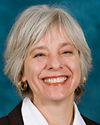
Nassauer
Nassauer is the author or co-author of 60 articles and more than 20 books and monographs. She developed the Ecological Approaches to Brownfield Redevelopment course and has advised more than 60 students working on theses and dissertations. In 2008, students invited her to present the inaugural School of Natural Resources and Environment Student Government “last lecture.” A director of the National Socio-Environmental Synthesis Center, Nassauer is a founding member and past president of the U.S. Section of the International Association for Landscape Ecology, and chairs the group’s Taskforce on Public Policy. She serves on the editorial boards of several journals and book series.
The International Association for Landscape Ecology honored her as its distinguished scholar, and the U.S. Landscape Ecology Association named her Distinguished Landscape Ecologist and Distinguished Practitioner. Her awards include the Federal Highway Administration’s National Environmental Excellence Award for a highway visual assessment system and an Environmental Protection Agency award for rainwater garden design. The American Society of Landscape Architects, of which she is a fellow, has honored her twice with its National Merit Award for Research.
Distinguished Faculty Achievement Award, Carl P. Simon
Complex adaptive systems pioneer Carl P. Simon is known for his mathematical models involving natural dynamics of motion over time, which he applies to such diverse fields as economics, ecology, human behavior, literary genres and the transmission and evolution of infectious diseases. His findings have challenged the assumptions behind Adam Smith’s “invisible hand” market-based economics theory and inspired public health researchers to think differently about the spread of disease. Simon broke ground in HIV/AIDS research in the 1980s by looking at the disease as a complex evolving system. He and colleagues John Jacquez and James Koopman discovered that HIV was most communicable early in the infection, before antibodies became active, so standard HIV screening tests often were ineffective. Their discovery won the Howard M. Temin Award in Epidemiology for Scientific Excellence in the Fight Against HIV/AIDS in 1995. Ten years later, a paper building on this research earned the Kenneth Rothman Epidemiology Prize for best paper in epidemiology.
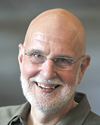
Simon
Simon is co-author of the textbook Mathematics for Economists, used at more than 220 universities. He publishes in a range of top journals. Simon has helped thousands of students succeed in math-intensive academic programs by making challenging material relevant, understandable and entertaining. He also has created nine new courses and has taught in the Gerald R. Ford School’s Public Policy and International Affairs Junior Summer Institute for many years. He was the founding director of the Center for the Study of Complex Systems from 2000-09 and was an associate director of the Michigan Memorial Phoenix Energy Institute. He currently directs the Ford School’s Science, Technology and Public Policy Program.
His accolades include the Faculty Recognition Award, Michigan Association of Governing Boards of State Universities’ Distinguished Faculty Award, LSA’s Excellence in Education Award twice, and its Distinguished Senior Lecturer Award. Students also have selected him to give the Gerald R. Ford School of Public Policy commencement address twice.
Research Faculty Recognition Award, Michael Bailey
An experimentalist who works at the cutting edge of cyber security, Michael Bailey formulates and solves fundamental computer science research problems and turns theoretical results and observations into projects that benefit society. Early in his career, Bailey recognized the need for reproducible science in the field of networking and computer security, and started building infrastructures to measure Internet phenomena.
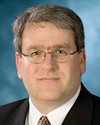
Bailey
He collaborated on the Internet Motion Sensor, a project to observe and characterize security threats such as worms, denial of service attacks and network scanning activities. Network operators and defenders use Bailey’s tools and methods to analyze millions of programs to decipher their origin and evolution. Through his leadership at the Virtual Center for Network and Security Data, he has made more than 37 terabytes of netflow data and 87 terabytes of network telescope data available to security researchers. He also led a successful effort to deploy and evaluate a prototype detection and mitigation system for 14 government networks monitored by the Department of Homeland Security. Bailey has been examining the tension between the complex and stealth nature of Internet attacks and the responsibilities of researchers to protect user privacy and confidentiality.
He is a contributing author to The Menlo Report, a Department of Homeland Security-sponsored document on ethics in information and communication technology research. Bailey publishes in selective computer science research venues, including the Institute of Electrical and Electronic Engineers Symposium on Security and Privacy, the Association for Computing Machinery Internet Measurement Conference, and the Distributed System Security Conference. He has served on program committees for numerous high-profile conferences and as program chair of the USENIX Workshop on Large-Scale Exploits and Emergent Threats. A frequent and popular guest lecturer within his department, Bailey also is an adviser to doctoral, masters and undergraduate students. The CoE honored Bailey, a senior Institute of Electrical and Electronics Engineers member, with its Kenneth M. Reese Outstanding Research Scientist Award in 2011.
Faculty Recognition Award, Pamela Brandwein
Pamela Brandwein has conducted path-breaking research on the U.S. Supreme Court and American constitutional development, with a focus on the Civil War and Reconstruction eras. Her first book, “Reconstructing Reconstruction: The Supreme Court and the Production of Historical Truth,” won special recognition in the Sociology of Law Best Book Prize for its examination of the legal historiography of Reconstruction as an ideological and institutional enterprise.
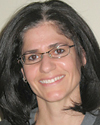
Brandwein
Her second book, “Rethinking the Judicial Settlement of Reconstruction,” refigures legal and historical knowledge about the Supreme Court’s resolution of issues opened by the Civil War. By reconstructing the intellectual, political and legal worlds of the Reconstruction era, she reveals anachronisms in the standard view, which holds that the Supreme Court abandoned blacks to their former masters. Showing that the Court built a rights jurisprudence favorable to claims by blacks terrorized by the Ku Klux Klan, and that abandonment was due more to the actions of the executive and legislative branches, Brandwein revises the way political scientists think about the court’s role during this period. She also reinterprets state action doctrine, a central Fourteenth Amendment rule that has been a barrier to applying constitutional penalties to private actors. Brandwein has written scores of conference papers and journal articles, including several in Law and Society Review. Her essay on law and American political development is featured in the 2012 Annual Review of Law and Social Science.
Brandwein received the Tronstein Award, her department’s highest teaching honor, and twice has been recognized with the American Political Science Association’s Pi Sigma Alpha Teaching Award for teaching excellence. She is a senior fellow in the Michigan Society of Fellows and a 2012 recipient of a Michigan Humanities Award. She has served on the Department of Political Science Executive Committee and works on diversity issues. She also is active nationally in the American Political Science Association, Law and Society Association and American Society for Legal History.
Faculty Recognition Award, Stephen DesJardins
Stephen DesJardins is recognized internationally for his research on the economics of higher education, student college choice, student departure from college, and higher education policy analysis and research methodology. His advances in the application of methods enhance the study of problems such as how financial aid affects student enrollment, retention and completion. DesJardins was among the first scholars to recognize that event history techniques could be used to unravel the temporal impact of student behavior and institutional policies on educational outcomes. He is frequently quoted in the media about issues such as trends in college financial aid.

DesJardins
DesJardins invests significantly in his classroom teaching and mentoring. In nine years he has directed or co-directed 12 dissertations and served on 13 dissertation committees. Until June 2012, he directed the top-ranked Center for the Study of Higher and Postsecondary Education. He is an elected member of the School of Education Executive Committee and a member of the school’s Academic Leadership Group and Research Group. He has served on numerous university committees focused on studying financial aid, course demand, learning analytics, graduation rates and space utilization. DesJardins publishes in top journals, is an editorial board member of the Economics of Education Review and is associate editor of the methodology section of Higher Education: Handbook of Theory and Research. He has produced numerous reports, including for the Bill and Melinda Gates Foundation and the Congressional Advisory Committee on Student Financial Assistance.
He has served on the boards of directors of the Association for the Study of Higher Education and the Association for Institutional Research, and technical review panels for the federal government, most recently the Beginning Postsecondary Students Longitudinal Study. He recently received Northern Michigan University’s Distinguished Alumni Award and the Sidney Suslow Award “for significant, scholarly and original contributions to higher education” from the Association for Institutional Research.
Research Faculty Achievement Award, Mei-Chuan (Holden) Ko
Mei-Chuan Ko’s path-breaking research spans behavioral neuroscience, neuropsychopharmacology and translational medicine. He has made substantial contributions toward understanding the mechanisms underlying substance abuse, the itching sensation, and the therapeutic potential of orphanin FQ peptide receptor system in primates. Through analysis of pain management data for various pharmacological agents, Ko discovered that orphanin FQ peptide receptor-specific and opiate-like agents modify the pain response without the side effects associated with muopioids, including abuse, constipation, and respiratory depression. His observations have garnered the attention of several pharmaceutical firms, which view the orphanin FQ peptide receptor as a potentially powerful target in the search for better ways to manage acute and chronic pain. Ko also established several experimental itch models in monkeys with translational values and provided a pharmacological basis of kappa opioid receptor agonists as antipruritics.

Ko
Ko contributed to behavioral and physiological studies that support the use of cocaine esterase as the long-term therapy to treat cocaine abuse. The treatment is in Phase I clinical trials. His expertise in non-human primate models provided the foundation for studying the effects of cocaine esterase on cocaine toxicity and self-administration. In addition to six book chapters and monographs, Ko has authored or co-authored 60 PubMed articles in top-ranked journals. He serves on the editorial boards of journals in the fields of pharmacology and anesthesiology, and is an ad hoc reviewer for 35 scientific journals. He has won funding from the National Institutes of Health, Department of Defense, and pharmaceutical and biotechnology companies. Ko serves on the Medical School Advisory Committee on Primary Research Appointments, Promotions and Titles, and the University Committee on Use and Care of Animals, and is active in professional societies. Ko has received several awards, including the Early Career Investigator Award from the College on Problems of Drug Dependence, and the Wyeth-Ayerst Young Psychopharmacologist Award from the American Psychological Association.
Faculty Recognition Award, Wei Lu
Wei Lu has reshaped the field of applied mechanics with his modeling and computation of self-assembly mechanisms. His discoveries have provided the foundation for nanofabrication and produced breakthroughs in batteries, nuclear energy and medicine. Lu, co-director of the General Motors and U-M Advanced Battery Coalition for Drivetrains center, uses multi-scale and multi-physics approaches to address challenges in energy and nanomechanics, including mechanical electrochemical processes in lithium ion batteries. His studies have revealed the collective actions of multiple fading mechanisms and generated a realistic three-dimensional mechanical, thermal and electrochemical framework for predicting and optimizing battery performance, critical to electrical vehicles.

Lu
In the Department of Energy Modeling and Simulation for Nuclear Reactors project, Lu developed a tool that allows quantitative prediction of the grid-to-rod fretting problem, which accounts for more than 70 percent of nuclear fuel failures. In another investigation, he demonstrated that light-scattering properties of blood cells could be used to diagnose malaria. Lu has given more than 100 presentations and invited talks and has published several book chapters and 72 journal articles. Lu is associate editor of the Journal of Computational and Theoretical Nanoscience and serves on other editorial boards and as a reviewer for 30 publications and the National Science Foundation.
Lu created the Nano/Micro Structure Evolution course for graduate engineering students and has enriched existing courses with new materials and open-ended problems. He has served on 27 doctoral committees and has supervised more than 20 students through the Undergraduate Research Opportunity Program and other mentoring programs. Lu has chaired numerous symposia and served on the American Society of Mechanical Engineering Electronic Materials Committee, Nanomanufacturing Committee, Nanoscale Phenomena Committee and Composite Materials Committee. Active in faculty governance, he chaired the Senate Assembly Financial Affairs Advisory Committee and served on the Committee for a Multicultural University. Lu has received a National Science Foundation CAREER Award and the Mechanical Engineering Robert M. Caddell Memorial Research Achievement Award.
Faculty Recognition Award, Jeffrey R. Martens
Pioneering pharmacologist Jeffrey R. Martens’ innovative research focuses on novel therapeutic strategies to treat atrial fibrillation and curative treatments for the congenital loss of smell. His work on potassium channel movement in heart cells revealed that traditional antiarrhythmic drugs may act in a previously unknown manner, opening the door for the development of new agents to treat cardiac arrhythmias. His findings raise important issues for drug safety screening and indicate that current approaches may miss potentially lethal side effects.

Martens
In his path-breaking work on the olfactory system, Martens examined fundamental mechanisms in the function of primary cilia on sensory neurons in the nose. These mechanisms are important in ciliopathic diseases, including loss of smell and vision and disorders such as renal and liver failure, and brain malformation. A key player in elucidating molecular mechanisms that underlie ciliopathies leading to the loss of smell, Martens is conducting patient studies of a screening tool in which “scratch-and-sniff” tests are used to ascertain associations between genetic disorders and olfactory abnormalities. He also is working with viral gene delivery to correct such problems.
Martens’ laboratory is a top choice for student researchers pursuing scientific careers. He also is influential in the classroom, where he teaches two highly regarded courses he created, History of Pharmacology and Introduction to Translational Research, and co-directs Cardiovascular Pharmacology, a critical core course. Martens frequently is invited to speak at international meetings, most recently at the Royal Danish Society of Sciences and Letters. He has published four book chapters and more than 50 articles in prestigious journals, serves on editorial boards and is a respected peer reviewer. In addition to directing the Pharmacology Imaging Facility, Martens chairs the Pharmacology Graduate Program and directs the Translational Research Certificate Program, operated by the Medical School and the Michigan Institute for Clinical and Health Research. In 2007, the Association for Chemoreception Sciences recognized him with its Polak Young Investigator Award.
Faculty Recognition Award, Ayyalusamy Ramamoorthy
A world leader in nuclear magnetic resonance spectroscopy and membrane biophysics, Ayyalusamy Ramamoorthy is known for his investigations into atomic-level resolution structures of proteins associated with the cell membrane, amyloid proteins, bone and nanomaterials. His pioneering developments address problems including the functioning of antimicrobial peptides, the first line of defense against infection, and the molecular mechanisms that underlie Alzheimer’s disease, HIV and type 2 diabetes. Ramamoorthy co-invented polarization inversion spin exchange at the magic angle, known as PISEMA, which allows researchers to determine the structures of peptides and proteins in membranes, a major advance in drug development. He has invented other tools to study peptide-lipid interactions, including an approach to streamline nuclear magnetic resonance data collection from membrane proteins. This pioneering work illuminated the structural basis for electron transfer, one of the most fundamental biochemical processes in living systems.

Ramamoorthy
Ramamoorthy’s research has resulted in 182 peer-reviewed papers in journals including Science, Journal of the American Chemical Society and Biochemistry. He promotes advancements in science as an editorial board member for top journals and has served on numerous National Science Foundation panels and National Institutes of Health study sections. He regularly hosts conferences at the university and at American Chemical Society meetings. Ramamoorthy serves on numerous U-M department committees and secured funds to purchase major research instruments that benefit the wider university. He developed two new courses for the new undergraduate biophysics program and a new chemistry course focused on thermodynamics and kinetics.
Committed to mentoring, Ramamoorthy has chaired more than 15 dissertation committees, is or has been a member of more than 75 doctoral committees, and has worked with more than 50 undergraduate researchers. A fellow of the American Association for the Advancement of Science, he has received a NSF CAREER Development Award and a Distinguished Visiting Professorship at Japan’s Osaka University, among other honors.
University Undergraduate Teaching Award, Aline Cotel
Aline Cotel is known for her accessible teaching style, engaging courses she creates, transformative research opportunities for students, and for improving education in the developing world. She has energized the engineering curriculum with new courses about environmental turbulence and stream restoration. Final projects in the course included a feasibility study of dam removal on Fleming Creek at Matthaei Botanical Gardens, and restoration of a stream feeding into U-M’s Saginaw Forest. She also has brought a green engineering perspective to Sustainable Systems I, a course she co-teaches in the A. Alfred Taubman College of Architecture and Urban Planning.
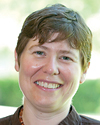
Cotel
Cotel regularly brings together high school, undergraduate and graduate students into cross-disciplinary teams to conduct field research. She is active in the Undergraduate Research Opportunity Program, the National Aeronautics and Space Administration’s Summer High School Apprenticeship Research Program, and the College of Engineering Marian Sarah Parker Fellowship Program. She is a leader in a project spearheaded by U-M and universities in the United States and Ghana to jumpstart engineering and agriculture education in Liberia, where she also co-taught a Global Intercultural Experience for Undergraduates course focused on sustainable energy.
Cotel founded the Women in Fluids Network to nurture women graduate students and junior faculty pursuing careers in fluid mechanics and co-founded the Women-Water Nexus, which promotes water resources research, educates future women scientists and engineers, and improves conditions for women in developing countries. She has co-chaired the CoE Faculty Discipline Committee, which enforces the college’s honor code, and has served as a reviewer for the National Science Foundation Graduate Research Fellowships and the National Academics Research Associate Fellowships. The Great Lakes District of Chi Epsilon, civil engineering’s national honor society, awarded Cotel its 2001 James M. Robbins Excellence in Teaching Award. She also has been recognized with the Elizabeth Crosby Research Award, the Civil and Environmental Engineering Excellence Award, and the National Science Foundation CAREER Award.
University Undergraduate Teaching Award, Kathleen Sienko
Kathleen Sienko is transforming engineering education with novel courses anchored on her human-centered, co-creative medical device design process in which students define a problem, develop and evaluate potential solutions, create prototypes, and receive feedback from actual clients. Through her research, teaching, and service, she solves problems that significantly impact health and quality of life in the developed and developing worlds. Sienko created and piloted the CoE Minor in Multidisciplinary Design: Specialization in Global Health Design, which emphasizes field experience, conducting clinical observations and interviews with stakeholders, and exposure to global health issues. Each semester 20-25 students work on design projects under her tutelage, addressing the need for cost-effective surgical tools and maternal health devices in developing countries.
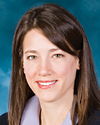
Sienko
Recently, her students designed an inexpensive and non-electric assisted delivery instrument to use during obstructed labor, a major cause of maternal mortality. This and other devices created from her graduate Design for Global Health programs and student projects are part of the Global Health Medical Device Compendium, an open-source inventory of devices for resource-limited settings that she and her students compiled and shared with the World Health Organization (WHO). Sienko chaired a session at WHO’s first Global Forum on Medical Devices in 2010 and has served on the WHO Advisory Group for Innovative Technologies. She is working to establish the CoE as a WHO collaborating center.
Sienko has trained more than 100 undergraduate students, leveraging her classroom as an extension of her research laboratory. She has served on the Provost’s Faculty Advisory Committee and the Center for Global Health Internal Advisory Committee. Sienko has been recognized with a Pi Tau Sigma Professor of the Term Award, Raymond J. and Monica E. Schultz Outreach and Diversity Award, and Provost’s Teaching Innovation Prize. In 2010 and 2011, she participated in the National Academy of Engineering Frontiers of Engineering Education Symposia as an invited speaker.
University Press Book Award, Buzz Alexander
Buzz Alexander recounts the story of the Prison Creative Arts Project and celebrates the students, incarcerated adults and youths, and others who have participated in the project since it began in 1990, in his book, “Is William Martinez Not Our Brother? Twenty Years of the Prison Creative Arts Project.” The project fosters creation of original work in the arts in Michigan prisons, juvenile facilities, urban high schools and communities. Alexander also writes about the disproportionate number of imprisoned African Americans and Hispanics and the impact of mass incarceration on American society and individuals and individuals like Martinez. The youth was killed in 1989 by guards as he walked away from a fight in a California State Prison exercise yard. The United States incarcerates 2.3 million residents, more than any other nation. Participating in the arts helps individuals withstand and often overcome the conditions and culture of prison, Alexander writes.

Alexander
Since 1996, he has co-curated 17 annual exhibitions of art by Michigan prisoners. More than 4,000 people viewed 390 works of art by 229 artists from 39 prisons at the 2010 exhibition. The project has received a National Endowment for the Arts Access Grant, a Rockefeller Foundation Partnerships Affirming Community Transformation Grant, and an Artist-in-Residence Implementation Grant from the Michigan Association of Community Arts Agencies.
Alexander is the author of numerous articles and two other books including “Film on the Left: American Documentary Film from 1931–1942,” which won the Theatre Library Association Award for best film book that year. A Guggenheim Foundation Fellowship winner, other awards include U-M’s Amoco Good Teaching Award and Regents’ Award for Distinguished Public Service, Harold R. Johnson Diversity Service Award, and the 2005 U.S. Professor of the Year Award from the Carnegie Foundation for the Advancement of Teaching and the Council for the Advancement and Support of Education.
University Librarian Recognition Award, Suzanne Chapman
Suzanne Chapman is called a national leader in library user experience, an expert in Web accessibility, and has played a critical role in shaping the University Library’s online presence. As head of the library’s User Experience Department, Chapman designs technology that supports scholarship and makes collections readily discoverable and accessible. She consistently focuses on the big questions surrounding delivery of services to patrons, in particular on how the application of good design principles can enhance the overall user experience. Chapman’s User Experience Department promotes user-centered design and is recognized nationally for its leadership.

Chapman
She designed the HathiTrust Digital Library user interface, which is deployed by more than 60 research libraries, facilitating the discovery of and access to more than 10 million digitized volumes. She also led the effort to create a mobile version of HathiTrust to meet the growing needs of an increasingly mobile-focused world. A founding member of U-M’s Web Accessibility Working Group, Chapman has made it possible for U-M’s print disabled patrons to access full-text digitized books and journals in the HathiTrust Library. The interface she designed earned accolades from the National Federation of the Blind. She also received a certificate of appreciation from U-M’s Council for Disability Concerns. Chapman led the project to create a mobile version of the MLibrary website, and made important contributions to the implementation of ArticlesPlus, which allows users to search across most of the library’s licensed resources.
As a key member of MLibrary’s Public Access Resources Committee, Chapman chairs its Usability Working Group, which has achieved national attention, in part for the 25 publicly available usability reports documenting six years of user research that the group created. Her most recent study gathered data by observing students’ online research habits, and by interviewing experienced library users to learn how they conduct research, which services they value, and what obstacles they face. The results will inform the design of future MLibrary systems.
University Librarian Achievement Award, Nerea Llamas
Nerea Llamas has built the University Library’s Latin American holdings into a collection worthy of a world-class research university. Well versed in the languages, cultures and histories of the region, Llamas was appointed to the new position of Latin American Studies librarian in 2001. She now manages all aspects of collection development for Latin American and Caribbean Studies and Iberian Studies, including cultivating relationships with North American, Latin American and Iberian publishers and vendors. Llamas brings a learner-centered approach to library services by helping students delve into research questions, seek and validate resources, and transform their findings into new knowledge.
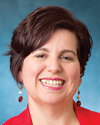
Llamas
As coordinator of the Harlan Hatcher Graduate Library’s International Studies Collections, Llamas works to ensure that the library keeps pace with globalization. For the past four years, she has lectured about international studies librarianship to School of Information students. She also hosts librarians visiting from other countries, provides advanced reference assistance in the social sciences and humanities in the Graduate Library Reference Department, and is co-chair of the Humanities E-Resources Team. She also was co-leader of the team that made it possible for U-M community members to access the Shoah Visual History Archive, which preserves the oral histories of Holocaust survivors and witnesses.
As a leader in various university settings, Llamas brings people together to work in an efficient, focused and collegial manner. Serving as president of the Seminar on the Acquisition of Latin American Library Materials in 2010-11, Llamas organized the group’s successful annual meeting, Preserving Memory: Documenting and Archiving Latin American Human Rights. She edited the seminar’s newsletter, served on its executive board, and chaired the group’s 2004 meeting, “Women in Latin American Studies: Reshaping the Boundaries,” at U-M. Llamas also has served as secretary and convener of the Midwest Organization of Librarians of Latin American Studies.
Research Faculty Achievement Award, Mary Beth Ofstedal
Called an outstanding scientist, administrator and collaborator in the field of population aging, Mary Beth Ofstedal is respected for the originality of her research and the managerial skills she brings to the Institute for Social Research’s Health and Retirement Study (HRS). The study is the University’s largest federally funded research project. She has had a major impact on scientists’ and policymakers’ understanding of the health and socioeconomic status of older populations here and abroad. Ofstedal’s groundbreaking comparative research across multiple countries is helping scientists separate the biological effect of aging from the influence of the socio-economic setting and health infrastructure. In another influential study, she used several waves of HRS data to measure trends in the cognitive ability of the older U.S. population and found little improvement — a finding that differed from previous studies.
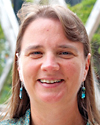
Ofstedal
Since 1992, the HRS has been surveying a representative sample of more than 26,000 men and women over age 50 in the United States. Ofstedal has facilitated a major expansion of the study’s content and coverage since joining it in 2004. In addition to economic, demographic, psychological, and sociological information, the HRS recently started collecting biological measures, a significant advance in population studies. The HRS is a model for other countries, including Costa Rica, Mexico, China, Japan, South Korea, and numerous countries across Europe. Ofstedal coordinates the National Institute on Aging-supported network of 14 Centers for Aging Research. She also directs the Michigan Center on the Demography of Aging network on comparative international survey research.
Ofstedal has published 49 book chapters and articles in diverse journals. She helped organize the Population Association of America Conference in Washington, D.C., in 2011 and the Conference on Aging in Developing Countries in Chile in 2007. She is a mentor to students from a range of disciplines, including social work, public health and sociology.
Collegiate Research Professorship Award, Susan Shore
Susan Shore’s original research has altered scientists’ understanding of the mechanisms involved in hearing, hearing loss and brain changes associated with hyperacusis and phantom sound perception, or tinnitus. In experiments on the neurophysiology of the cochlear nucleus, she demonstrated that hearing loss in one ear causes a dramatic reorganization of the neural connectivity between the two sides of the brain.

Shore
More recently, she has found that loud noise can cause lasting changes to auditory circuitry that may contribute to hyperacusis, or uncomfortable loudness. Her research paves the way for new treatments for patients suffering from this debilitating disorder. Shore’s studies reveal distortions in brain circuitry that may underlie tinnitus, also known as ringing in the ears. Her group discovered that touch-sensitive neurons in the brain that receive tactile input from the face and head can alter the cochlear nucleus response to sound. Working with guinea pigs, her group discovered that these somatosensory neurons maintain a high level of activity following exposure to loud noise, even after sound levels return to normal. Shore believes it may be possible to alleviate tinnitus in humans by dampening the hyperactivity in response to loud noise through reprogramming auditory-touch circuits in the brain.
She has authored 12 book chapters, 57 invited papers and presentations, and more than 50 peer-reviewed papers in prestigious journals. She has mentored eight post-doctoral fellows, 17 graduate students, 30 undergraduates and several students with hearing disabilities. Shore serves on the University Senate Assembly and on the Medical School and the Kresge Hearing Research Institute executive committees. Nationally, she is chair of the American Tinnitus Association scientific advisory board, associate editor of the Journal of the Association for Research in Otolaryngology, and guest editor of the American Journal of Audiology. She also reviews articles for scientific journals and National Institutes of Health grant proposals, and is invited to speak at international conferences and seminars. Her accolades include U-M’s Lydia Adams de Witt Award for Woman in Science and Engineering and the Research Faculty Achievement Award.
Distinguished Faculty Governance Award, Michael Thouless
Michael Thouless has contributed significantly to faculty governance within his department and the College of Engineering, and as a leader of the Senate Advisory Committee on University Affairs (SACUA), Senate Assembly and the University Senate. He has elevated the stature of faculty governance across campus, and has persuaded new faculty members to become involved, resulting in a more diverse SACUA. First elected to the Senate Assembly in 2004, Thouless served on SACUA from 2007-10, as vice chair in 2008-09, and as chair in 2009-10. He helped shape the university’s policy on research faculty and pressed for clearer and fairer faculty grievance procedures. The Senate Assembly also adopted a Statement of Academic Freedom, U-M’s first authoritative statement confirming it protects academic freedom. Thouless initiated conversations between the Academic Affairs Advisory Committee and SACUA about the meaning of tenure, and helped enhance faculty understanding of undergraduate experiences.

Thouless
Thouless has served on the Rackham School of Graduate Studies Executive Board, Academic Affairs Advisory Committee, Administrator Evaluation Committee, Academic Freedom Lecture Fund Board of Directors, and Faculty Budget Advisory Committee. He has also served as director of the Department of Mechanical Engineering Undergraduate Program. Thouless’ articles on creep deformation, composites, fracture, adhesion, and the mechanical properties of thin films, coatings, and structural adhesives are internationally recognized and highly cited. He has been awarded the University of Cambridge’s Doctor of Science Degree, and was elected an overseas fellow of Churchill College, Cambridge. He is a fellow of the American Society of Mechanical Engineers and is a Chartered Engineer and fellow of the Institute of Materials, Minerals and Mining in the United Kingdom. He has received the CoE Service Excellence Award and Research Excellence Award, and the Department of Mechanical Engineering’s Achievement Award and Excellence in Teaching Award. The U-M chapter of Pi Tau Sigma, the national mechanical engineering student society, has selected him Professor of the Term three times.
Jackie Lawson Memorial Faculty Governance Award, Thomas A. Wrobel
Thomas Wrobel has chaired the UM-Flint Faculty Council twice and served on many of the most important faculty committees on campus. He served on the Committee on the Economic Status of the Faculty and the Academic Affairs Advisory Committee, which he chaired multiple times, as well as on dean and provost search committees, many of which he also led. Wrobel chaired the UM-Flint Department of Psychology from 1993-96 and from 2003-09, and served as a senior adviser to the Flint chancellor in 2001. Wrobel has strengthened connections among the university’s three campuses. In 1992, he was a founding member of the Meeting of Minds Committee, which organizes an annual undergraduate conference where Dearborn and Flint students present their research. Wrobel has represented UM-Flint on the University’s Honorary Degree Committee and is serving his third term as the Flint campus faculty ombuds, regularly meeting with ombuds at the Ann Arbor and Dearborn campuses. He gathered data about the Dearborn campus as part of its 2011 strategic planning and preparation for reaccreditation.

Wrobel
Wrobel has published numerous research papers on personality assessment, psychological responses to trauma, and issues related to death and grieving. He teaches courses on psychological testing, behavior modification and health psychology, and supervises students’ clinical internships. He has served as the faculty adviser to the UM-Flint chapter of Psi Chi, the international honor society of psychology, for more than 20 years. Psi Chi honored him with its Midwestern Region Faculty Adviser Award in 2000.
His contributions to faculty governance were recognized in 2011 with the UM-Flint Distinguished Service Award. Previously, he received the College of Arts and Sciences Special Merit Award for Teaching and the UM-Flint Teaching Excellence Award.

